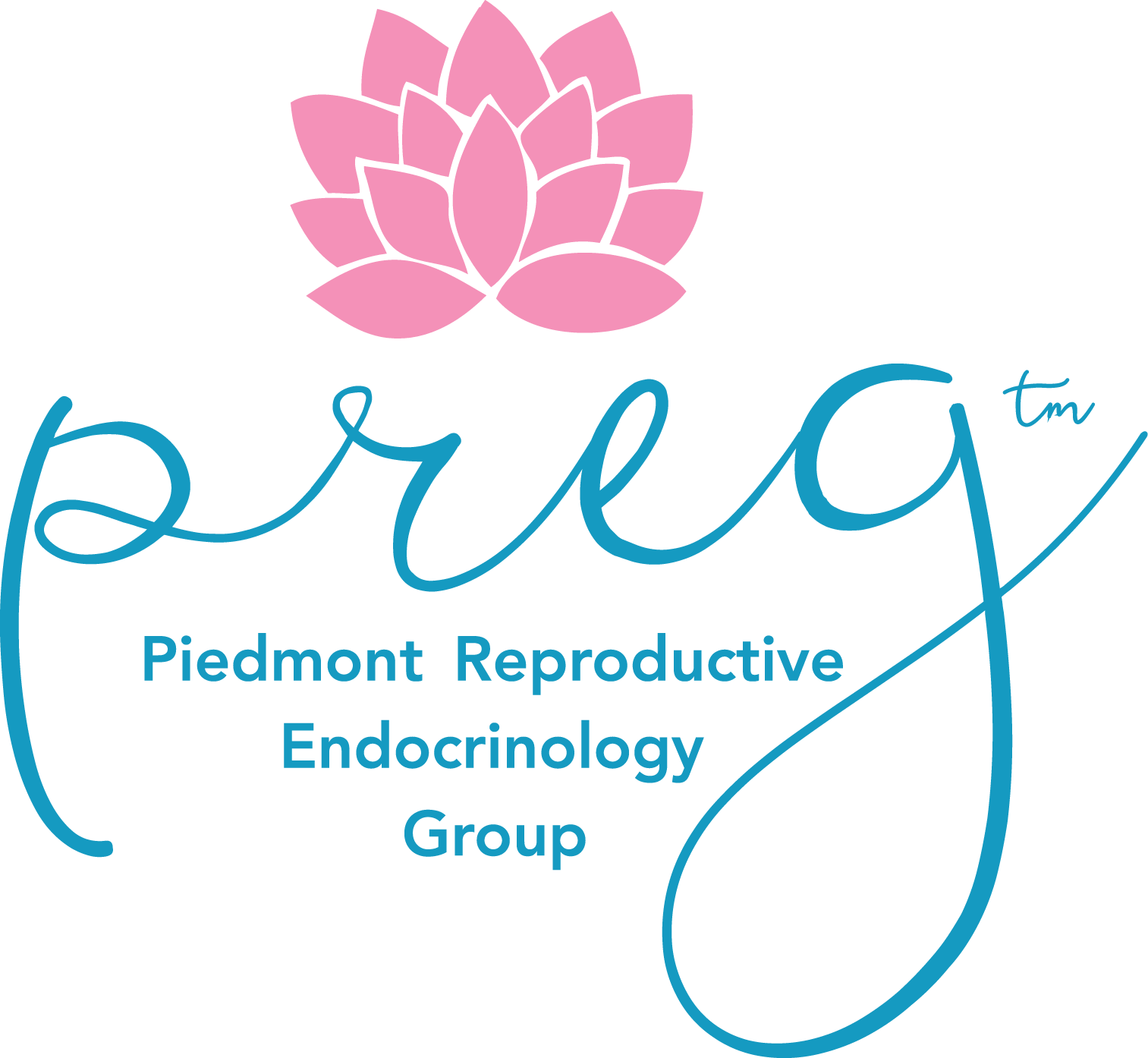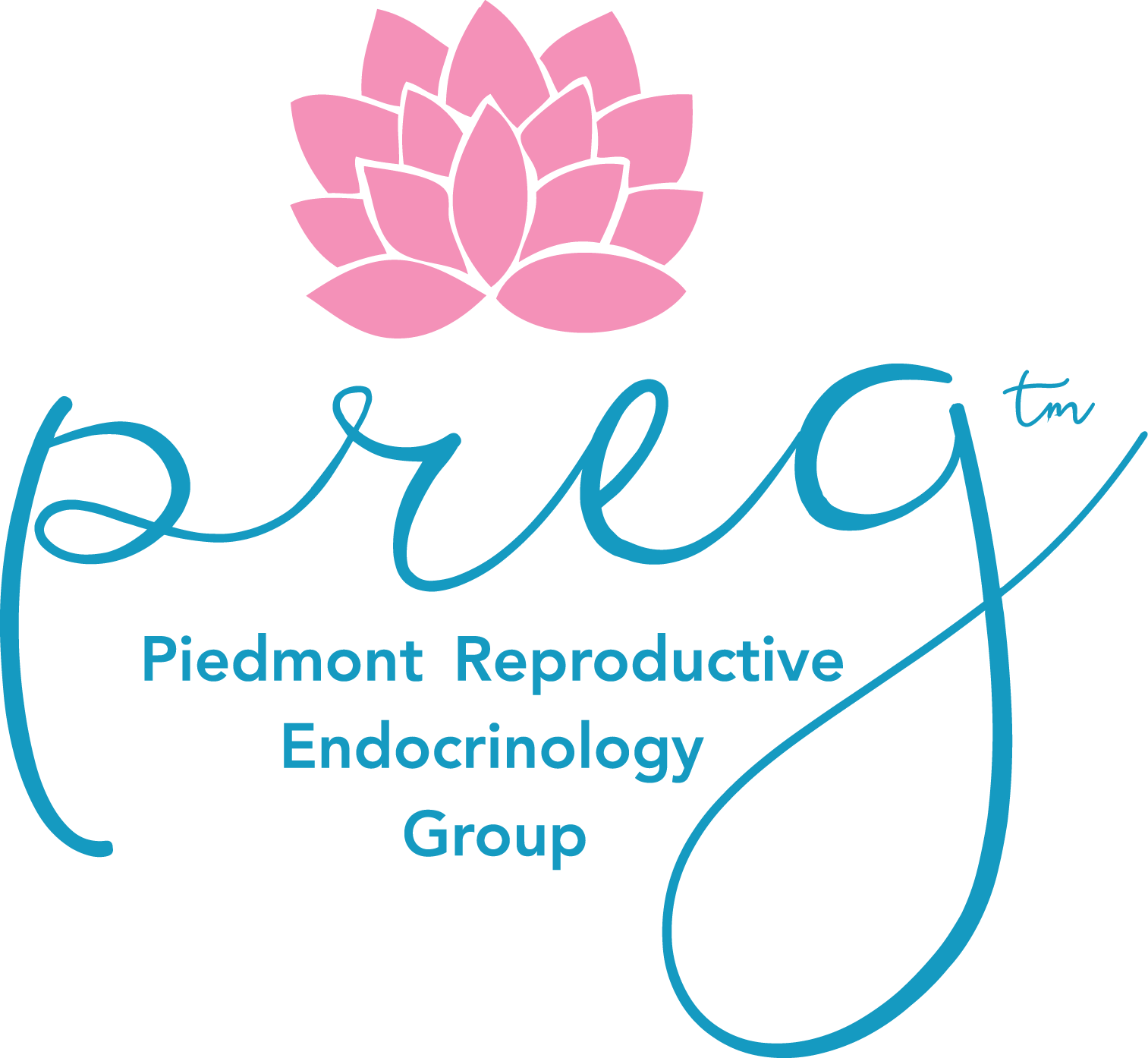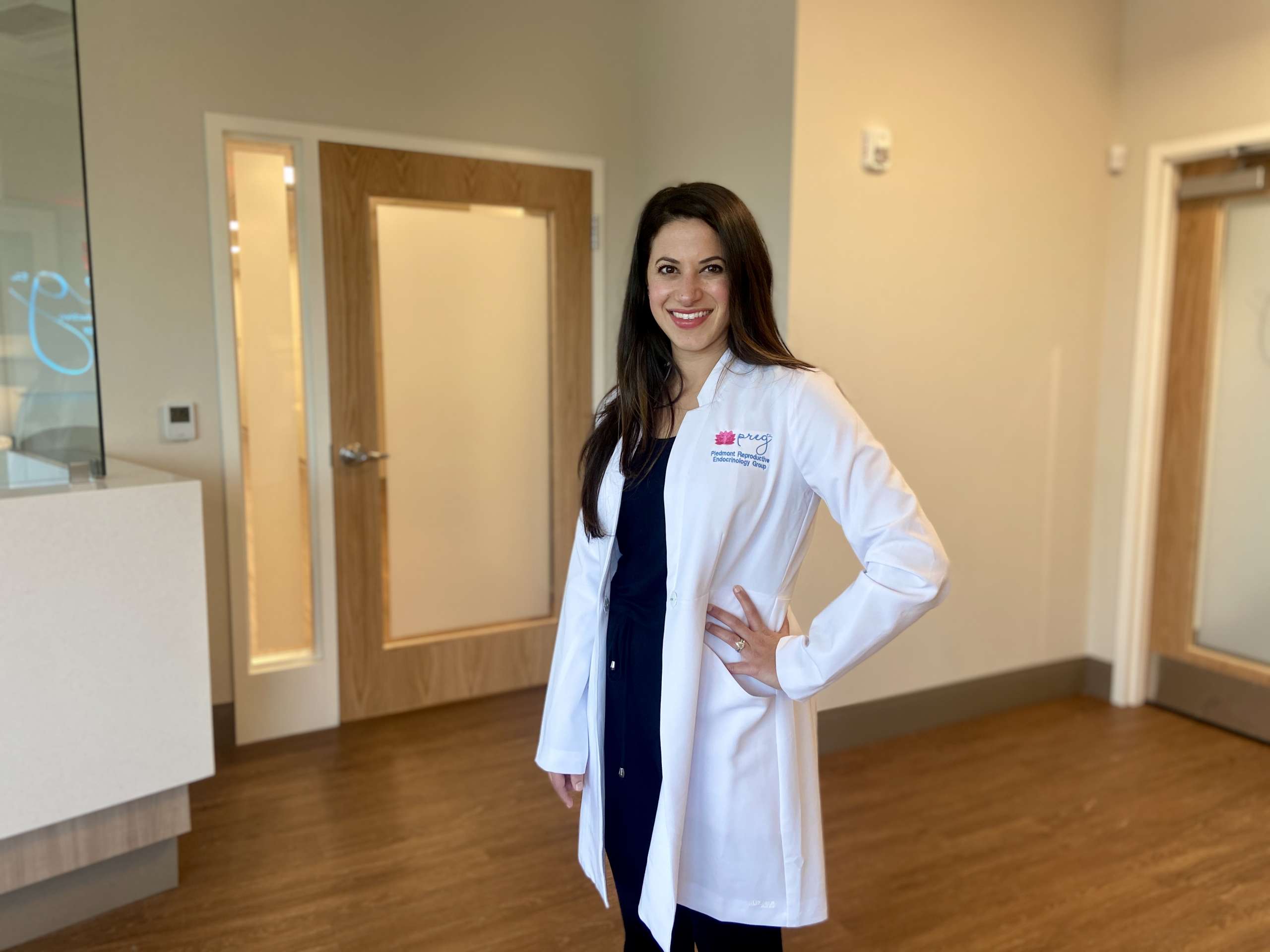Dr. Snow, what is secondary infertility?
Secondary infertility refers to couples’ experiencing infertility after they have already had a child. This is very frustrating for these couples because they didn’t have any issues conceiving their first child, but now they have tried to conceive again, and they just can’t.
Unfortunately, a good number of secondary infertile couples will take longer than the traditional time frames of what is recommended for seeking care with a specialist, and it’s because they keep thinking that it’s eventually going to work. However, if it’s been a year of unprotected intercourse in women under 35 yo, or six months in women over the age 35, you should seek care with us. A caveat to that is if you know or think there is something that may have affected your fertility (i.e. not having a period), you should not wait to get help.
Why is it so important at this stage?
It’s important because women and men both age, but more significantly as women age, our fertility declines. Many times in our role as fertility providers, we are constantly thinking ahead, not just about their first baby, but about the potential desire for a second. Each pregnancy episode is going to occupy about a couple of years of a woman’s life, and depending on her age at the start of her first pregnancy, that can significantly impact her fertility when she is ready to have her second baby.
What kind of issues can occur between the first pregnancy and the next pregnancy?
Of course aging, in general, can affect women’s potential outcomes and we start to be concerned when they are 35+ years of age. Depending upon the person, weight changes can affect one’s ability to conceive, especially if they cause your menstrual cycle to change. Having a c-section, D&C, or other surgeries can cause concern for scarring of the uterus after delivery. With regard to the partner, heavy smoking and/or drinking can adversely affect semen parameters. In addition, men over the age of 45 yo have been shown to have more chromosomally abnormal sperm than their younger counterparts. All of these things need to be evaluated to determine if they could be contributing to secondary infertility.
What about things like fibroids, PCOS, endometriosis, etc. in between pregnancies?
Conditions such as these can certainly change in between pregnancies. Fibroids can grow over time, and what once was a small fibroid can now become a larger fibroid that is impinging on the area where we would hope the embryo would implant. For PCOS and endometriosis, these conditions can certainly change over time. Endometriosis and PCOS are conditions that women may know about before they conceive, but oftentimes they may not if they conceived at younger ages in their 20’s and then are trying again in their 30’s. Some women with endometriosis and PCOS need help conceiving their first pregnancy but not their second and vice versa. My advice is always to seek help sooner rather than letter in the event that the patient is aware of an underlying condition that is affecting their fertility.
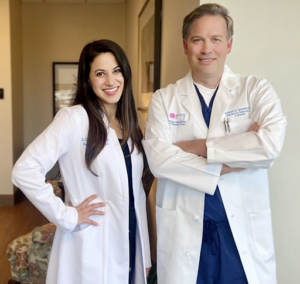
When you come in for an evaluation whether it’s secondary or primary infertility it’s going to be similar. We are going to take a full history of the female and her partner and see if there are any contributing factors from their medical or social history that could be at play. Typically, for the female, we perform an ultrasound to evaluate her uterus and ovaries as well as bloodwork to check hormone levels and ovarian reserve. We will evaluate one’s thyroid, prolactin, and hemoglobin A1C, which is a measure of average blood sugar over a three month period. We typically draw a blood test called an AMH level. Anti-mullerian hormone is a substance produced by the granulosa cells in the ovary, and this gives us a sense of a woman’s egg supply.
From there, we take a semen sample from the male partner which requires two days of abstinence, but no more than five days. Men will pick up a collection kit from our office to collect at home and deliver within an hour to the clinic or it can be collected in our facility if distance is an issue. We then compare the results to guidelines set by the World Health Organization (WHO), which sets the standard for interpreting semen analyses.
So this gives you a benchmark reference point to begin your evaluation?
Yes, these are good places to begin the process. I think depending on the history of the female patient you may want to also consider doing something called an HSG (Hysterosalpingography) which is an X-ray test to outline the internal shape of the uterus and show whether there are any blockages of the fallopian tubes that may have occurred between the first and the second attempted pregnancies.
What if any is the percentage of a woman who has conceived her first baby with fertility treatment will need it for the second child?
It really depends upon what, if any, is her underlying condition. For example, in PCOS, some patients need help with their second child, but others conceive spontaneously and it surprises them. On the contrary, couples with male infertility involving severely low semen parameters are indicators that the couple will likely need assistance with a second baby.
Can you address the biological clock for these couples?
At 38 years old, approximately half of the eggs the female is producing are going to be genetically abnormal. This isn’t anyone’s fault, it is merely a function of the fact that women are born with all of the eggs they will ever have, and we do not make more as we grow older. So as women age, we have to consider that our reproductive efficiency declines. So it is important to consider how many more children a couple is planning to have. If a patient is 38-years old and desiring potentially two more children, it likely makes the most sense to move forward with IVF to freeze embryos for your desired family size. Let’s say you get pregnant at age 38 – that’s going to be at least a year and a half of pregnancy/postpartum recovery before you’re even going to consider having another baby. Not to mention that at 38 years of age you have a higher chance of miscarriage than when you were 28, or whenever you conceived your first child.
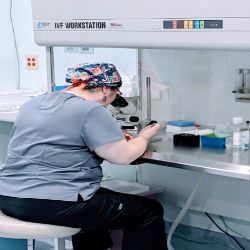
What’s most challenging about secondary infertility is that the couples who come in had no issues getting pregnant with their first child. So applying normal logic, if you conceived your first child without any problems, why would you have issues conceiving your second? While frustrating, we know it is not always this simple. Up to 50% of the couples we see in the office have secondary infertility. Another challenge is that I find that couples with secondary infertility often keep trying at home for longer than they should because they keep hoping it will work.
Dr. Snow can you please address the emotional toll involved in secondary infertility following a miscarriage?
This is one of the most difficult things a patient can experience. Miscarriages definitely take a toll on the couple. From the female perspective, women tend to blame themselves, but we know that over 80% of the time miscarriages are caused by genetic abnormalities. Despite the science behind it, It’s still very emotional and traumatic. There are several ways to manage a miscarriage. The first is to wait for some weeks to allow the pregnancy to pass on it’s own. The second option is to take a pill at home which helps your body pass the pregnancy. The benefit to doing this is that you can time it to your convenience, but it’s also traumatic to have bleeding and cramping at home. The third is to schedule a D&C in which you fall asleep, and it’s over. The downside to this is that you have to undergo anesthesia and take a day off work. There’s a low chance of scarring to the uterus, but it’s still present as a risk.
I think either way: A) you have a miscarriage and you have to deal with it somehow and then; B) you are waiting for your cycle to resume so you can try again. And that part takes anywhere from two weeks to 2-3 months. It can be an emotional time because you are waiting for the chance to try again, but you are also terrified of getting pregnant again after what you just went through. It takes a lot of fortitude.
We have gotten in touch with a lot of great counseling resources in the area, and I really encourage patients to seek that type of support. It’s a really big deal to go through something like that, and you don’t just feel better overnight by getting pregnant again. Women who’ve miscarried are mourning the loss of a child, and it’s important they seek the support they need to process it all.

Yes, definitely. Family and friends sometimes expect their loved ones to move on, with good intentions, but you can’t just move on. You have to mourn and work through the loss and grief. Even though you are happy with your current children and/or new child, it’s not like the loss goes away. At PREG, we are sensitive to these emotions as we treat people seeking to grow their family despite a previous loss.
Dr. Snow PREG is known for seeking options for couples in fertility. Can you speak to this?
There are certainly always options, and sometimes when you approach those options with patients, they aren’t ready to hear them. However as the journey continues, people become more open to different pathways to parenthood. For example, I have couples who present in their 40’s all of the time, and an option you should always consider is using an egg donor given that egg quality at this age is suboptimal. Choosing an egg donor involves using the eggs of a younger woman who remains de-identified. However, you pick that person based on her profile, and you learn about her likes, education, medical history, family history, etc. Embryo adoption is also becoming a much more popular option, which involves transferring an embryo from a couple who has undergone the IVF process, but has decided to donate their remaining embryos at the conclusion of their family building. Like egg donation, you can also pursue sperm donation in the cases of infertile or subfertile men. There is a plethora of sperm banks in the US, and again, donor profiles are de-identified but very thorough in that you learn a significant amount about the donor prior to making any decisions.
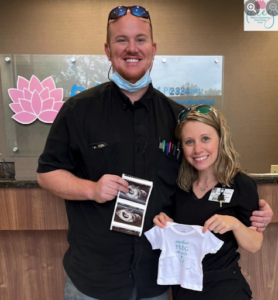
So I would ask the patient what her ideal family size is. Are you thinking that after you have one additional child you are done, and if so, not, then we should probably freeze embryos now. If you have a partner and know you want another child but maybe now is not the right time the best case scenario would be to freeze embryos and they can remain frozen for decades until we are ready to use them. However, we stop transferring them at age 50. Sometimes our military couples when their significant other is deployed they may want to do things in the interim while they are home and there are all kinds of situations where couples may want to delay.
Maintaining self-care is so important to ensure that women maintain their overall health to be fit for pregnancy. Taking a prenatal vitamin is always a good idea, it can be your standard vitamin and you don’t need another one to take on top of it. Maintain a healthy weight and diet. I don’t recommend patients cut out any nutrients, carbs, sweets, it’s just overall maintaining a healthy diet and the 80/20 rule, where 80% of your diet is nutritious and 20% can be the less nutritious. Monitoring your caffeine intake is to not overdue your caffeine intake. So anything over five cups of coffee will decrease fertility. Typically we say 2-3 cups a day is ok, but ideally you should be 1-2 cups per day. Now caffeine consumption has no semen parameters in men, but alcohol does. When you are trying to get pregnant be mindful of your alcohol consumption. The goal is to be mindful of your alcohol intake. Smoking is bad in general and does harm fertility chances for both men and women. The same is true for cannabis, because smoking marijuana can definitely affect the male parameters and affect sperm and impair fetal nerve development. Don’t do it in pre-pregnancy and pregnancy.
What about environmental exposure?
I tell my patients when we are trying to get through the nitty-gritty of it all to stop using plastic. Heating up food in plastic containers from your Chinese carryout are things that are small changes in your day to day life that can impact your fertility. For example, drinking out of plastic water bottles and using plastics have properties within them that can have an impact on fertility. These are good things to just avoid when trying to get pregnant.
What about exercise and meditation during secondary infertility care?
One thing patients ask is if they should slow down their exercising during pregnancy and I always say no! If you are used to exercising before pregnancy please continue to exercise during pregnancy. Exercise is good for you and that means that for something you are used to doing and your body is used to it I don’t think if you’re pregnant and you’ve never run marathons before pregnancy is not the time to start training for a marathon, but it’s not the time you need to be taking it easy. It’s actually the time you should be taking the most care of yourself and that includes exercise. Meditation is a great tool as well, I think we don’t take enough care of our mental health and it’s extremely important.
Why is exercise so important?
Exercise helps prevent obesity during pregnancy and we know that obesity can directly impact both male and female fertility. So anything you can do to keep yourself in a healthy weight and balanced diet is going to increase your chances and outcomes. Now is the time for these couples to do everything they can to be as healthy as they can possibly be. While we are waiting for test results, to see if the tubes are open, and if the ultrasound is normal, semen analysis normal, all of those weeks we can be eating healthy, cutting back on alcohol, caffeine and moderating lifestyle to improve the chances for successful outcomes.
What about oral health?
If you have bad dental hygiene there is a direct link with poor pregnancy outcomes. I think it’s because it represents more than dental hygiene. If you are not taking care of your teeth you may not be taking care of your overall health so I think it’s associated in general with overall health. When I was in residency in New York and had a new patient we would always send in a dental referral.
 PREG has centers in Greenville, Spartanburg, Asheville, Columbia and the Lowcountry where we offer highly personalized fertility care and management. Dr. Snow sees patients in our Lowcountry center. For more information on your reproductive options contact us today at 866.725.7734, or online at www.pregonline.com/contact-us.php
PREG has centers in Greenville, Spartanburg, Asheville, Columbia and the Lowcountry where we offer highly personalized fertility care and management. Dr. Snow sees patients in our Lowcountry center. For more information on your reproductive options contact us today at 866.725.7734, or online at www.pregonline.com/contact-us.php
Dr. Kathryn Snow, M.D., M.H.A.
Reproductive Endocrinologist
PREG, Lowcountry
